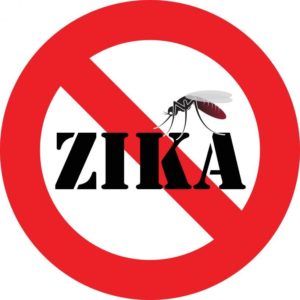
Zika virus infections are on the rise and the disease is spreading in great magnitudes throughout the Americas. According to the World Health Organization (WHO), it is an unusual event which has endangered the public health in many parts of the world. In the US, travelers are bringing back the infection from countries known to be infected with Zika. If you don’t know much about Zika virus, then this post will tell you all you need to know about health implications of Zika and its prevention.
Threat to Newborns
This virus is known to cause mild flu-like condition in most cases. But it is very harmful for pregnant women because of its association with microcephaly – a birth defect which causes reduction in the head and brain size, often accompanied by damage to the brain cells. A travel alert was posted by Centre for Disease Control and Prevention (CDC), advising expecting mothers to postpone their trips to locations with active Zika virus. The list is continually expanding and as of now contains 32 American countries including territories.
Guidance for Pregnant Women
According to the latest CDC guidelines, pregnant women having Zika symptoms are advised to get tested for the virus as soon as they return from their trip to such areas. Two positive cases for pregnant women have been registered in Illinois, while a baby was born with microcephaly recently in Hawaii. The mother of the child had previously lived in Brazil, a Zika hot zone since May 2015 with a reported 1.3 million cases of infection.
Transmission and Spread of Zika
The virus is carried by mosquitoes and people, but it is transmitted through mosquitoes in most cases. It is related to dengue, yellow fever and West Nile viruses, and is caused by the bite of Aedes mosquito. Ordinary mosquitoes can also spread the virus by feeding off blood of human the virus carriers, thus infecting local mosquito populations. Health officials in Texas have now confirmed that the virus can also spread through sexual transmission. According to WHO, the virus is expected to spread to all countries in the Americas, except Chile and Canada.
Symptoms of Zika
As with some other viral diseases, 80% of people who are infected with Zika do not develop any symptoms. In the 20% who do, fever, rash, conjunctivitis, pain behind the eyes, headache and pain in joints and muscles are the common symptoms reported by WHO.
Treatment
The symptoms of Zika virus normally last from two to seven days. There is no vaccine or effective treatment available for Zika virus infection. But over the counter medications for pain and fever are known to provide symptomatic relief for patients.
Prevention
The Zika infections can be prevented by using strong caution and preventive measures to avoid catching the virus. Some of the preventive measures that you can incorporate in your daily routine include:
- Wearing long sleeves and pants
- Using insect repellents and mosquito killers which contain 20% or more of DEET, oil of lemon-eucalyptus, picaridin or IR3535 when going outdoors specially at times of dusk or dawn
- Hindering mosquito breeding by eliminating their breeding sites which include water-filled containers such as outdoor pools, birdbaths, plant containers and toilets
- Maintaining clean toilets and other water-filled sites in homes
